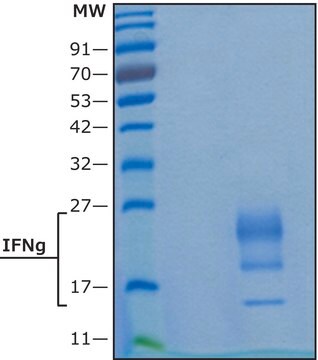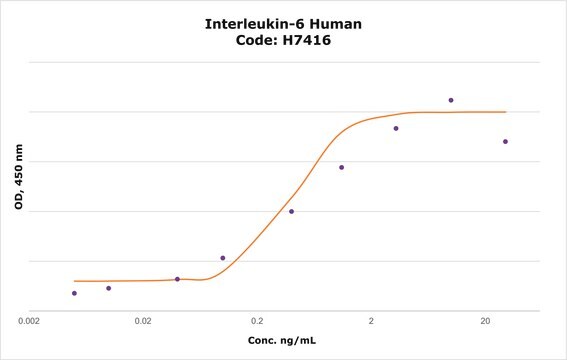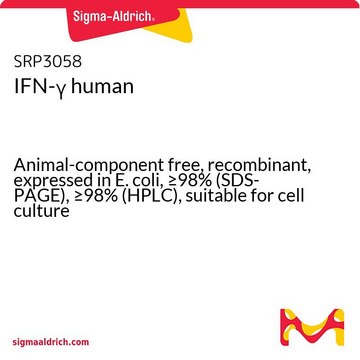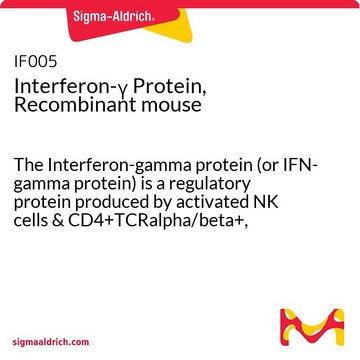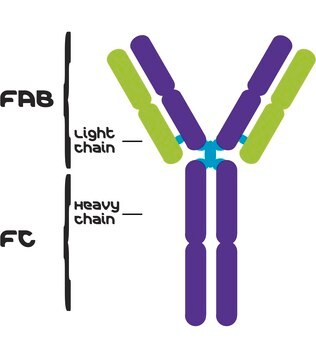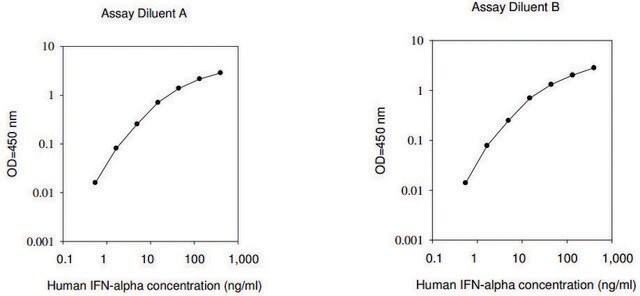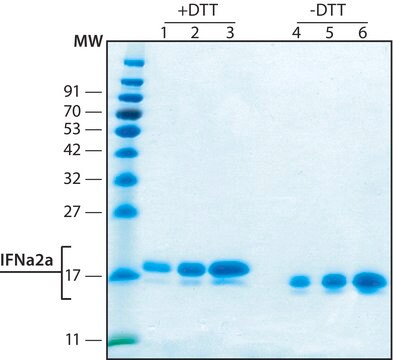I9032
Interferon β from mouse
≥95%, recombinant, expressed in E. coli, buffered aqueous solution, suitable for cell culture
Synonyme(s) :
IFN β
About This Item
Produits recommandés
Source biologique
mouse
Niveau de qualité
Produit recombinant
expressed in E. coli
Pureté
≥95%
Forme
buffered aqueous solution
Poids mol.
~20 kDa
Conditionnement
pkg of 1 vial
Concentration
2560000 units/mL
Technique(s)
cell culture | mammalian: suitable
Numéro d'accès UniProt
Conditions d'expédition
dry ice
Température de stockage
−70°C
Informations sur le gène
mouse ... Ifnb1(15977)
Description générale
Application
- in the stimulation of bone marrow-derived dendritic cells (BMDCs)
- as a cytokine to stimulate differentiation of podocytes
- to stimulate splenocytes
- to induce the activation of cholesterol 25-hydroxylase, by in vitro stimulation of bone marrow-derived macrophages, dendritic cells and CD11c+ lung macrophages
- to stimulate splenocytes, in order to study the secretion and regulation of IFN-γ
- to intranasally pre-treat neonatal mice, to study its effects on the protective actions of Lactobacillus rhamnosus GG (LGG)
- as a standard to treat MEF-Mx2-luc-BKO reporter cell line for IFN-β measurement, in response to human adenovirus-5 (HAdV-C5)
Actions biochimiques/physiologiques
Forme physique
Remarque sur l'analyse
Code de la classe de stockage
10 - Combustible liquids
Classe de danger pour l'eau (WGK)
WGK 1
Point d'éclair (°F)
Not applicable
Point d'éclair (°C)
Not applicable
Équipement de protection individuelle
Eyeshields, Gloves, multi-purpose combination respirator cartridge (US)
Certificats d'analyse (COA)
Recherchez un Certificats d'analyse (COA) en saisissant le numéro de lot du produit. Les numéros de lot figurent sur l'étiquette du produit après les mots "Lot" ou "Batch".
Déjà en possession de ce produit ?
Retrouvez la documentation relative aux produits que vous avez récemment achetés dans la Bibliothèque de documents.
Les clients ont également consulté
Notre équipe de scientifiques dispose d'une expérience dans tous les secteurs de la recherche, notamment en sciences de la vie, science des matériaux, synthèse chimique, chromatographie, analyse et dans de nombreux autres domaines..
Contacter notre Service technique